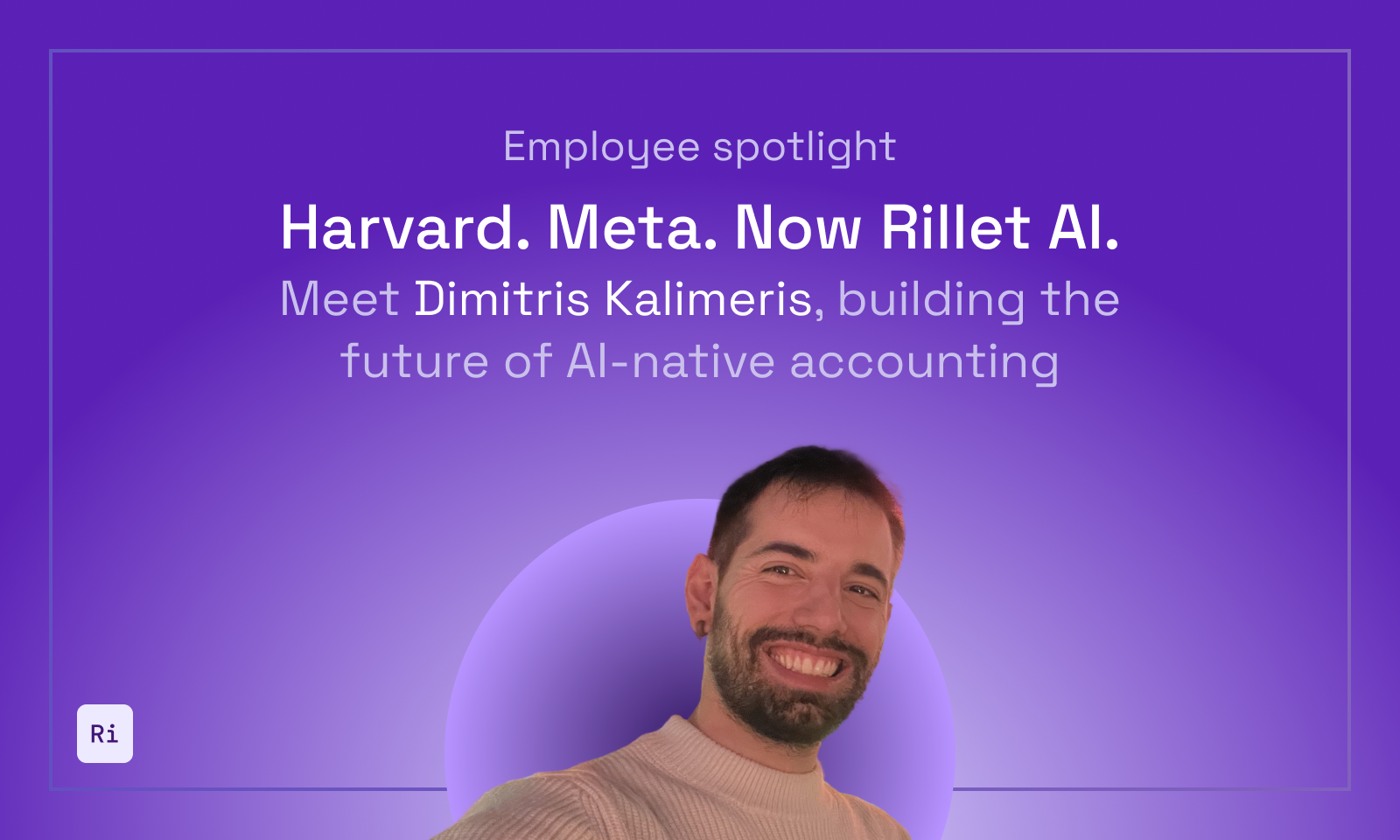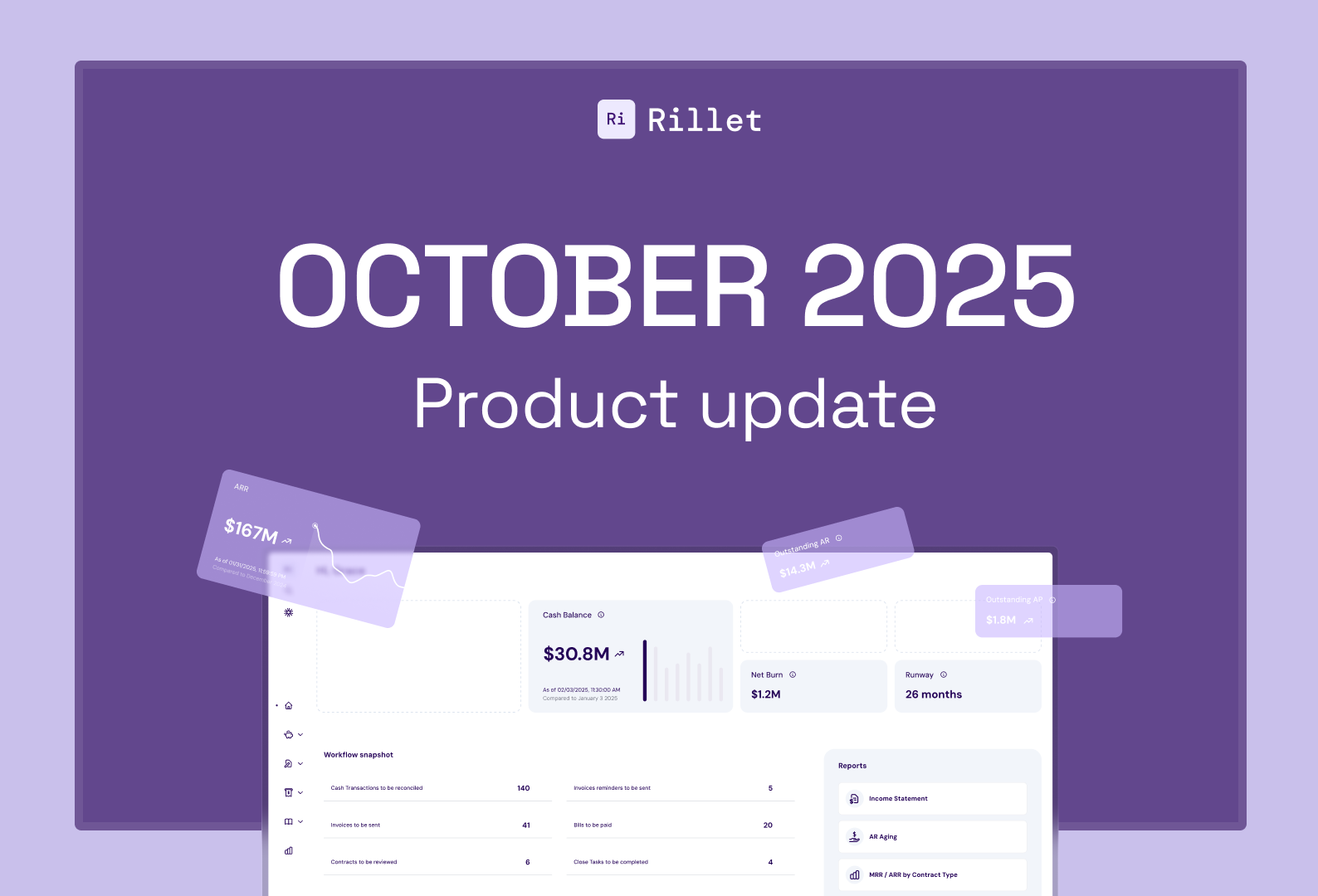The Best AI Accounting Software and Tools for 2025

.png)
Legacy accounting tools require a lot of valuable time to maintain that would be better spent on strategy. These tools are ridden with errors, especially when it comes to billing, revenue recognition and reporting. Additionally, they require complicated configurations for complex use cases and offer little more functionality than data consolidation.
However, today’s AI accounting software is different. In addition to the incredible time-saving benefits, AI accounting software can:
- Automate bookkeeping, reconciliations, and reporting.
- Reduce errors and manual work.
- Ensure compliance with GAAP reporting requirements.
- Provide real-time insights for smarter decision-making.
- Improve financial visibility.
- Speed up the time to close.
In this article, we’ll explore the 6 best AI accounting software solutions and tools in 2025 and how to choose the right option for your company’s needs.
Summary
Methodology: What We Considered When Ranking AI Accounting Tools
To rank these AI accounting software and tools, we considered overall capabilities, AI-structure (AI-native vs. cloud-based with AI integrations), UX/UI, ease of implementation, multi-currency reporting integration, and integration with an ERP, in addition to the nuances of each individual tool and customer reviews.
Overview of Ranking (More Details Below)
Why Rillet is #1: Rillet is an AI accounting software with a built-in ERP and native integrations. It offers multi-entity and multi-currency reporting, natural language financial analysis, and top-of-the-line customer support from ex-Big 4 auditors, and it’s all covered by best-in-class security. Plus, it’s built with an intuitive and attractive UI/UX, making it appealing and easy-to-use.
Why Puzzle is #2: Like Rillet, Puzzle is an AI-native accounting solution with revenue recognition, automatic error-checking, and a high level of accuracy. However, it requires third-party integrations for things like multi-currency reporting and isn’t optimized for larger organizations that also want an ERP.
Why NetSuite is #3: One of the “legacy” AI accounting software options with an embedded ERP, NetSuite is a good choice for medium to large enterprises. However, the UX/UI is less intuitive than some of the newer tools, making for a less positive customer experience. And because the software is not AI-native, it requires a lot of integrations for the features that are native with Rillet.
Why Sage Intacct is #4: Like NetSuite, Sage Intacct is a legacy accounting software built for medium to large enterprises. Sage CoPilot (Sage’s AI assistant) continuously monitors and syncs the ledger for accurate reporting. However, it relies on third-party integrations for most AI features and requires a long onboarding or implementation process (up to 6 months, according to Sage).
Why Xero is #5: Xero was built for solopreneurs, and in that small market, it shines. JAX (Xero’s AI agent) allows business owners to have a more holistic view of their finances, and integrations for WhatsApp, SMS, and email make it easy for small businesses to operate in real-time while they’re still in growth mode. However, it lacks a lot of the functionality of larger systems and requires integrations for many AI features.
Why Microsoft Dynamics is #6: Microsoft Dynamics is a good AI accounting software option for large and enterprise organizations already built on the Microsoft ecosystem. However, it is not optimized for businesses operating outside of Microsoft and requires third-party integrations for most AI functionality.
Key Considerations
Top 6 Best AI Accounting Software and Tools for 2025
1. Rillet
Rillet is an AI-native accounting software and ERP platform that automates bookkeeping, reconciliations, consolidations, and GAAP reporting. By combining a controlled data pipeline with actionable AI, Rillet transforms the general ledger into an intelligent, proactive financial system.
All ERPs have their strengths, but Rillet shines because it was built from the ground up with AI in mind, Legacy accounting tools (like NetSuite and Sage Intacct) typically rely on third-party integrations, which leave out the metadata that AI can act upon. Rillet’s integrations are all in-house, so data management is fully AI-optimized.
Key features & benefits
- Natural Language Financial Analysis: Ask Aura AI (Rillet’s AI agent) real-time questions like “Which customers typically pay late?” or “Who are our top 10 vendors?”
- AI-Driven Actions: Executes accounting tasks automatically, including flux analysis, accruals with reversals, and prepaid expense booking.
- Revenue Recognition & Consolidation: Automatically generates revenue schedules and books across pricing models.
- End-to-End Ledger Automation: Reduces manual journal entries and accelerates the close.
- Multi-Entity & Multi-Currency Accounting: Streamlines the accounting processes for multiple currencies and entities.
- Close management: Helps financial teams reach a zero-day close.
- Investor & GAAP Reporting: Manages all financial statements and investor reports in a single dashboard.
Who it’s best for: Rillet is great for startups, mid-sized companies, and large enterprises that want a truly AI-native accounting system and built-in ERP. Rillet understands and analyzes financial data to make all accounting processes faster, more efficient, and focused on growth.
2. Puzzle
Puzzle is a modern, AI-powered accounting system for startups that auto-generates clean books with both cash and accrual accounting. It learns your business over time to categorize transactions, flag anomalies, enable built-in accrual and revenue recognition policies, and give you real-time financial statements and insights.
Key features & benefits:
- AI Transaction Categorization: According to Puzzle, it automatically categorizes 90–95% of transactions, with the system improving over time.
- Built-In Integrations: Easily integrates with tools like Stripe, Brex, and Gusto
- Accruals & Revenue Recognition: Supports prepaids, AR/AP, fixed assets, and other accrual policies without external spreadsheets.
- Audit-First Accuracy: Offers continuous accuracy checks, anomaly detection, and vendor/transaction consistency reviews.
Who it’s best for: Puzzle is good for small businesses and startups that want AI accounting software but aren’t big enough to need an ERP.
3. NetSuite
NetSuite is one of the established leaders in the AI accounting industry. As a cloud-based accounting software, it automates AP/AR and provides extensive financial metrics, such as profitability ratios, inventory margins, liabilities, fixed assets, taxes, and cash positions. However, it is not AI-native and has less intuitive UX/UI than some newer entrants.
Key features & benefits:
- Cash Management Dashboard: See all your cash flows in one dashboard so you can optimize spending based on income.
- Tax Management: Simplify tax collection for everything from GST to VAT, consumption tax, and general sales tax.
- Grant Management System: View the entire grant lifecycle, including award status, funding milestones, allocations, spending, and deadlines.
Who it’s best for: NetSuite is best for mid-sized and large businesses that want their accounting practices automated but don’t want the additional capabilities of an AI-native accounting platform.
4. Sage Intacct
Sage Intacct is a legacy accounting ERP with all the features you would expect, like AR/AP management, intuitive budgeting and reporting, tax management, and cash flow analysis, but with the added benefit of an AI assistant. However, it is not AI-native.
Key features & benefits
- Sage CoPilot: Sage’s AI Assistant continuously monitors and syncs the ledger and makes it easy for accountants to find what they need.
- Intelligent General Ledger: Ensures accurate accounting and catches anomalies and opportunities with an AI-Integrated ledger.
- Automated Expense Reporting: Instantly processes digital receipts and connects them to corresponding transactions.
Who it’s best for: Sage is best for mid-sized and large businesses that are okay with a longer implementation process (Sage Intacct takes 3-6 months to implement) and a non-native AI.
5. Xero
Xero is a basic AI accounting software made for small businesses and solopreneurs. Xero is a low-cost, no-frills AI accounting platform that improves bookkeeping processes and allows for the flexibility that small businesses need. However, it lacks a lot of the functionality of the other tools on the list. For example, it relies on third-party app integrations for revenue recognition.
Key features & benefits
- JAX - The AI “Superagent”: JAX (Xero’s AI agent) allows you to ask plain language questions, like, “What are the loan rates in my industry?”
- WhatsApp, SMS, and Email Integration: Sends invoices and receives payments in whatever format works best for your small business.
- W9 & 1099 Management: Easily manages a team of contractors as your business grows.
Who it’s best for: Xero is best for small businesses and solopreneurs that want support with accounting practices without the more expansive offerings that come with more AI-native and immersive accounting software options.
6. Microsoft Dynamics
Microsoft Dynamics is Microsoft’s AI accounting software that integrates with the full Microsoft ecosystem. Dynamics automates cash management, invoicing, financial forecasting, and risk analysis.
Key features & benefits
- Financial Data Analysis: Microsoft Dynamics’ AI agent identifies spending patterns and suggests ways to cut costs.
- Invoice Management: Automatically generates and sends invoices to minimize daily tasks and oversight.
- Complete Integrations Across Microsoft Systems: Easily integrates with Microsoft’s CRM software, ERP, and small business services.
Who it’s best for: Microsoft Dynamics is best for mid-sized to large enterprises already built on the Microsoft ecosystem.
FAQ
Why is AI accounting software preferable to traditional accounting?
Traditional accounting software can only store financial data. AI accounting software understands and interprets it, which helps automate tedious work and provides real-time actionable insights. It transforms accounting from a reactive, manual process into a strategic, forward-looking function.
What does “AI-native” mean and why is it important when selecting an AI accounting software?
AI-native software (like Rillet) is intentionally architected for AI and the AI era. In the same way that traditional accounting software platforms like NetSuite and Sage were built to take accounting from excel spreadsheets to the cloud, AI-native programs like Rillet were made to take accounting from the cloud to fully integrated AI systems.
Will AI accounting software and tools work if my data is messy or spread across different systems?
The answer here depends heavily on which AI accounting software you choose. Some AI-native ERPs are built to integrate all your financial data across platforms and some are not. A good ERP or accounting software can even help clean and organize your data, connect all your systems, and bring everything into one place to optimize financial management.
Is it safe to use AI accounting software? Will my information be protected?
Safety and compliance are essential for CFOs, Controllers, and Accountants. Best in class AI accounting software like Rillet has specific security settings that keep you compliant and protect your data through encryption and financial guardrails.
For example, Rillet offers best-in-class security, including:
- 24/7 security monitoring
- GDPR Compliance
- Industry-leading encryption (AES-256)
- Continuous security tests to check for weaknesses
- Single Sign-On
The Bottom Line
AI accounting software helps finance teams and CFOs work smarter, not harder. It’s shaping the future of accounting, turning it from a place to store and categorize financial data into a strategic center of your business model.








